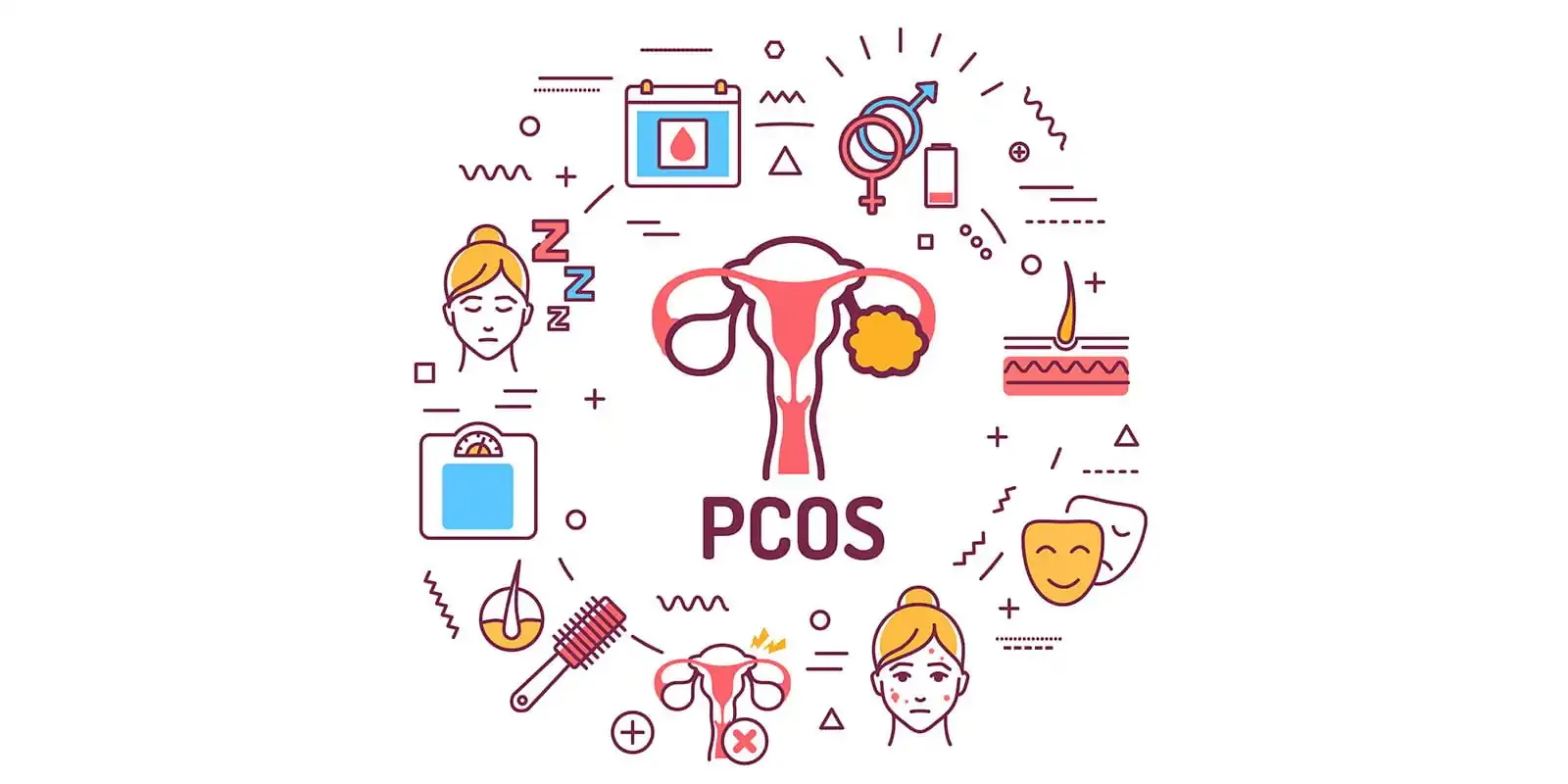
Despite being a common condition that affects many women of reproductive age, Polycystic Ovary Syndrome (PCOS) is not widely understood and its long-term consequences are often overlooked.
Many people are unaware of the potential risks associated with PCOS, such as metabolic disorders, cardiovascular diseases, endometrial cancer, infertility, and mental health issues. Several women may not even know that they suffer from polycystic ovary syndrome, as the symptoms of the syndrome can vary, while some individuals may even be completely asymptomatic. Unfortunately, this lack of understanding can lead to delayed diagnosis and inadequate management, which in turn increases the risk of long-term consequences.
For this reason, it is vital to increase women's awareness of the long-term consequences of the syndrome, to ensure that these women receive appropriate care to minimize risks and improve their health outcomes.

Εάν αναρωτιέστε τι συμβαίνει με τον κύκλο σας, τις ορμόνες ή τη διάθεσή σας,
ίσως ήρθε η στιγμή να το διερευνήσουμε μαζί.
What are the long-term consequences of Polycystic Ovary Syndrome?
Metabolic Disorders:
Polycystic Ovary Syndrome increases the risk of developing Type 2 diabetes, obesity, and metabolic syndrome. Specifically, hormonal imbalances caused by Polycystic Ovary Syndrome can lead to insulin resistance and glucose intolerance, which may eventually lead to Type 2 diabetes.
Additionally, women with polycystic ovaries often have sleep apnea, a condition where the individual's breathing is repeatedly interrupted during sleep. This can contribute to the development of insulin resistance and metabolic syndrome and also lead to a range of other health problems, such as hypertension, cardiovascular diseases, and stroke.
Cardiovascular Diseases:
Women with Polycystic Ovary Syndrome have a higher risk of developing heart disease and stroke. This is due to increased rates of obesity, high blood pressure, and high cholesterol levels, which are risk factors for cardiovascular diseases.
Thrombosis:
Some studies have shown that in women with Polycystic Ovary Syndrome, cases related to thromboembolic episodes are increased. However, it remains to be clarified whether this increase is due to the syndrome itself or is related to increased body weight and other risk factors indirectly related to the syndrome.
Endometrial Cancer:
Polycystic Ovary Syndrome can cause irregular menstrual cycles and period disorders, which can lead to endometrial hyperplasia and increased risk of endometrial cancer.
Women with polycystic ovaries who have rare periods or no periods at all have a higher risk of developing this type of cancer.
Mental Health:
Hormonal imbalances, physical symptoms, and potential fertility difficulties can burden the mental health of some patients. Regarding Polycystic Ovary Syndrome, studies have shown that several women report poor quality of life due to emotional distress and anxiety.
Therefore, Polycystic Ovary Syndrome may be associated with mental health conditions, such as depression and anxiety. This makes it essential to seriously consider the parameter of mental health in women with Polycystic Ovary Syndrome.
More on this topic here.
Infertility:
Polycystic Ovary Syndrome can affect the ovaries and lead to hormonal changes that may hinder ovulation, resulting in infertility.
Women with polycystic ovaries have a higher rate of infertility mainly due to lack of ovulation, as well as general difficulty in achieving pregnancy. More on this topic here.
Why is early diagnosis important?
Unfortunately, several women may have Polycystic Ovary Syndrome for many years before being diagnosed, thus increasing the risk of long-term complications. For this reason, early diagnosis of Polycystic Ovary Syndrome is of vital importance. For example, women with Polycystic Ovary Syndrome have an increased risk of developing Type 2 diabetes and therefore should be checked more regularly than the general population to be diagnosed in the early stages.
An experienced gynecologist can assess the symptoms and conduct the necessary tests, such as hormonal tests and ultrasound, for the diagnosis of the disease and the development of the appropriate treatment plan.
Importance of the collaboration of the gynecologist with other specialities:
Polycystic Ovary Syndrome is a complex disease that often requires the contribution of other specialists, besides the gynecologist, for effective management and a holistic approach to the patient.
An endocrinologist can help regulate hormonal disorders with medication. A dietitian can help create a healthy dietary plan, which is very important for managing Polycystic Ovary Syndrome, given that increased body weight or obesity is a common problem among patients with polycystic ovaries. Finally, a mental health counsellor could approach the mental consequences of the syndrome.
It is important to note that therapeutic plans may differ depending on the individual needs of each patient.
Conclusion - How Can We Help?
As a gynecologist with a special interest in polycystic ovary syndrome, my goal is to equip women with the knowledge and tools necessary for managing their condition and to contribute to minimizing the long-term consequences of polycystic ovary syndrome. With proper care and support, women with polycystic ovaries can lead a normal and satisfying life.
The key to minimizing these risks and effectively treating the syndrome is early diagnosis. That's why I urge you if you suspect you may have polycystic ovaries, to speak with a gynecologist specialized in polycystic ovaries and get properly informed.
Συχνές Ερωτήσεις για τις Πολυκυστικές Ωοθήκες
Πηγές
Berni TR, Malipatil NB, Manoharan D, et al. Polycystic ovary syndrome is associated with adverse mental health and neurodevelopmental outcomes. J Clin Endocrinol Metab. 2018;103(6):2116–2125. https://doi.org/10.1210/jc.2017-02667









